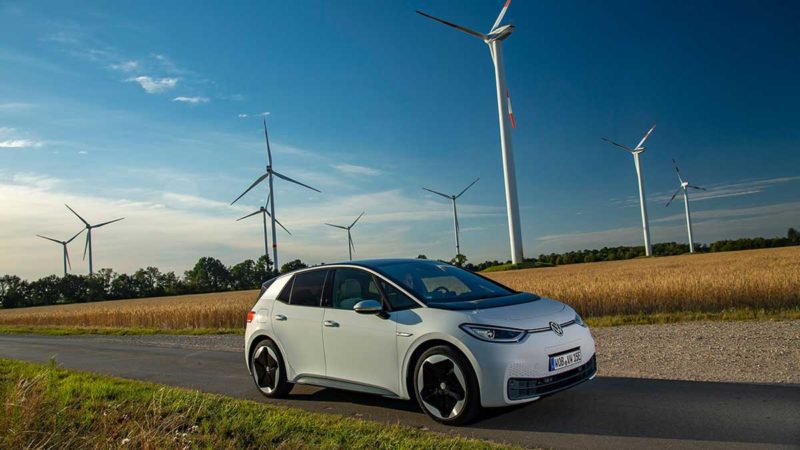German carmaking giant Volkswagen has roundly praised New South Wales’ newly-announced electric vehicle reforms, saying they would help drive Australia out of what it called the “automotive third world”.
On Sunday, NSW energy minister Matt Kean announced a $490 million package of reforms designed to stimulate uptake of EVs, including a stamp duty waiver, $3,000 rebates for up to 25,000 vehicles under $68,750, spending on charging infrastructure, and deferring a road user charge until 2027.
In a statement on Monday, Volkwagen Group Australia’s managing director Michael Bartsch called the reforms “logical and progressive.”
“The Berejiklian government has shown its federal colleagues and its counterpart in Victoria the way to bring about mass ownership of affordable electric vehicles,” he said. “In terms of his targets for private ownership and fleet take up of EVs, there is no faulting Mr Kean’s ambition.”
He said the Australian federal government’s lack of EV policy compared unfavourably with jurisdictions like the European Union, where CO2 emissions standards, rewards for companies developing EVs, and nation-based policies including carbon taxes were rapidly pushing the bloc towards electrification of transport.
“Europe’s mandatory carbon targets, enforced by severe penalties, will ensure that those markets continue to the first in line for zero emission vehicles,” he said.
“Volkswagen is further disadvantaged by being the only top 10 selling brand in Australia that remains subject to a tariff designed to protect local manufacturing that ceased in 2017. The other mass-market brands benefit from free trade agreements.”
He also compared NSW policy favourably with the Victorian government’s much-criticised decision to introduce a road user charge immediately, even as EV sales make up less than 1 per cent of car sales nationally. But he said it was the lack national policy that was the real problem.
“While the Victorian government’s vision of progress is to tax EVs while they are less than 1 per cent of new vehicles sales, it is the lack of national commitment to a Co2 target that has most impeded the case for EV prioritisation,” he said.
“While the federal government has resolved to address Australia’s third world fuel quality, until it and the other state governments emulate the vision of NSW, our country will remain a dumping ground for technology that cannot be sold in advanced countries.”
Until Sunday’s announcement, Victoria had Australia’s most wide-reaching EV policies. But the positive state government policies – which included a rebate of $3000 and a target for 50 per cent of new car sales to be zero emissions vehicles by 2030, but no stamp duty waiver – also included a road user charge at a cost of 2.5c/km for full battery EVs, and 2 cents for plug-in hybrids.
A group of major carmakers, including Volkswagen, called Victoria’s road user charge the “worst EV policy in the world”.
Among encumbent carmakers, Volkswagen has one of the world’s most ambitious plans to go electric, and says by 2030 60 per cent of the cars it makes will be electric.
A report released last week by European pro-EV campaign group Transport & Environment said Volkswagen and Volvo were the most prepared among the top 10 encumbent carmakers with plants in Europe for the EV revolution. It said Volvo had the greatest ambition of the two – it plans to go 100 per cent electric by 2030 – but Volkswagen had done more to actually prepare for the transition through updating production processes and supply chains.
Bottom of the list was Japanese car giant Toyota, which the report said had spent too long focusing on hybrids.
EV sales are on the rise in Australia, but they still make up a minuscule portion of total car sales. In May, of the 100,809 vehicles sold, just 436 were full battery EVs and 245 were plug-in hybdrids – together making up just 0.7 per cent of car sales. In the EU and the UK, more than 10 per cent of new cars our now full battery or plug-in EVs.
James Fernyhough is a reporter at RenewEconomy and The Driven. He has worked at The Australian Financial Review and the Financial Times, and is interested in all things related to climate change and the transition to a low-carbon economy.

